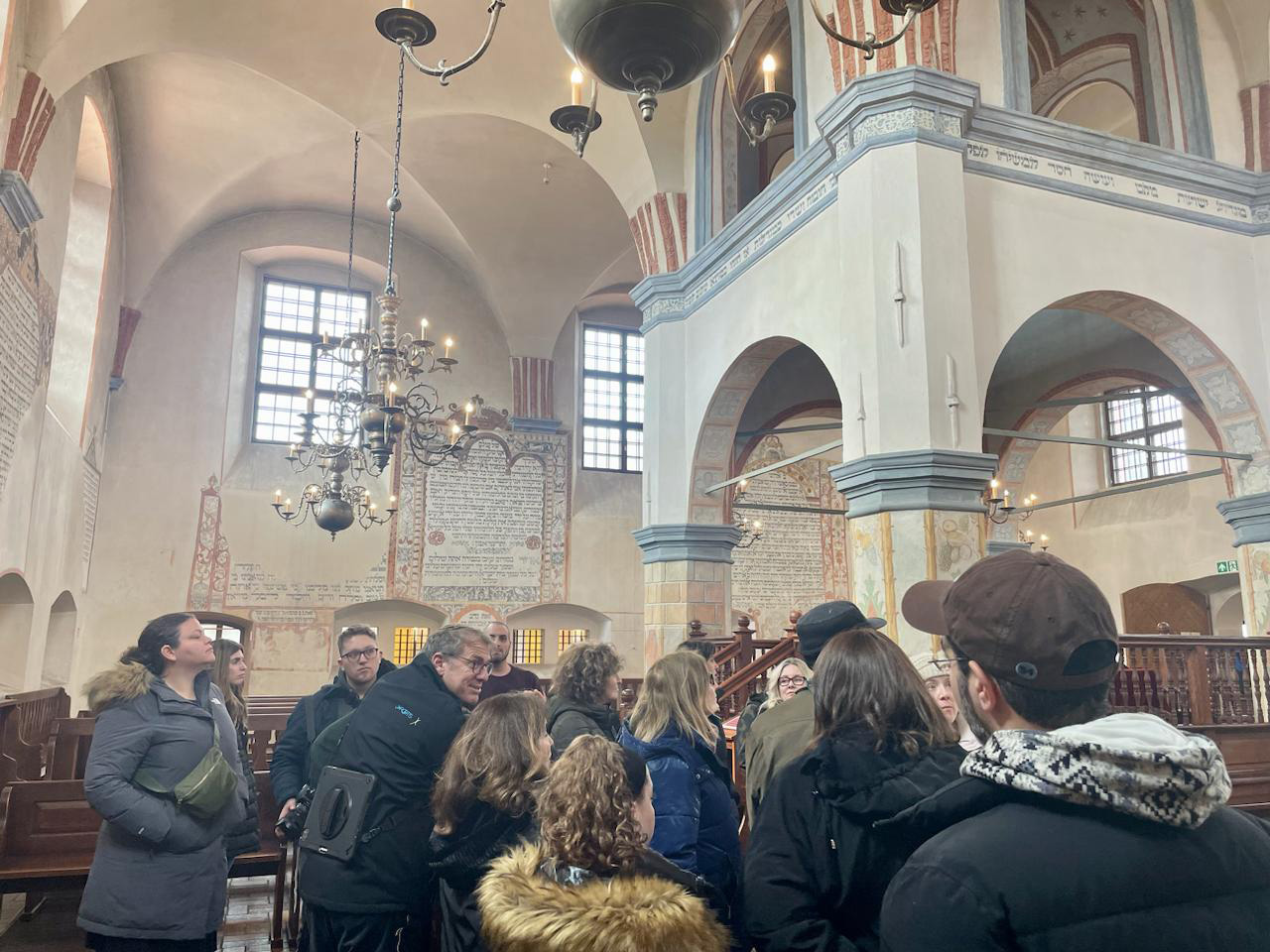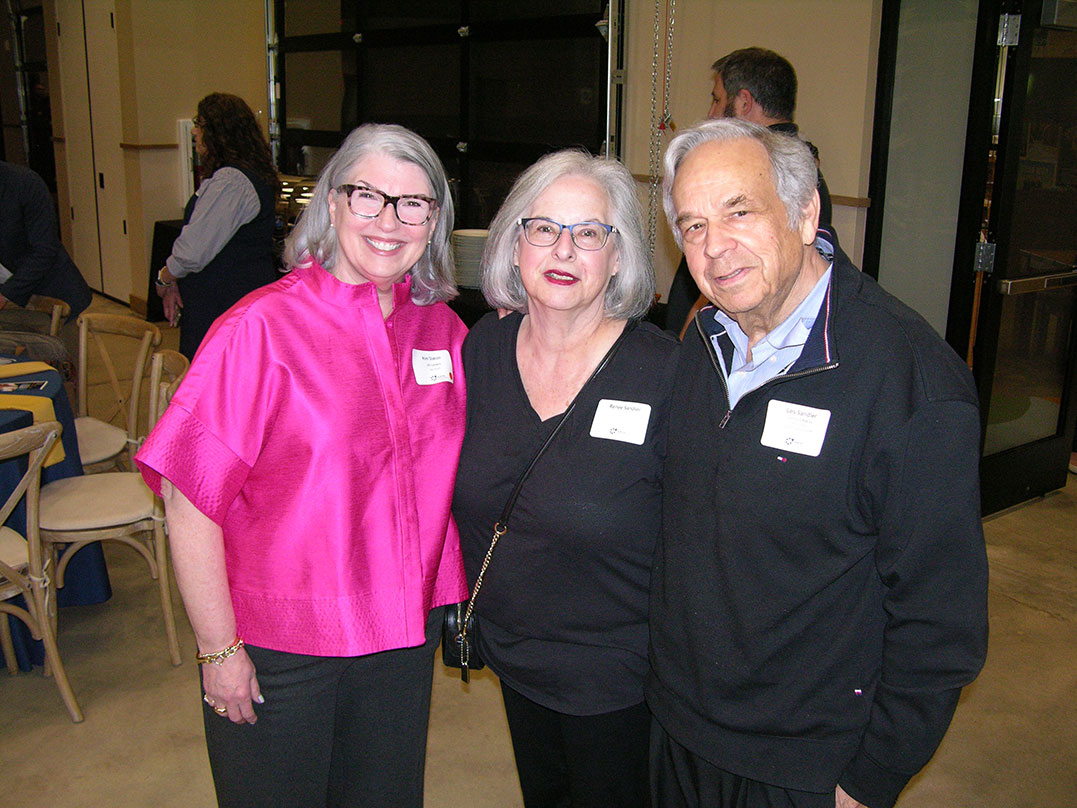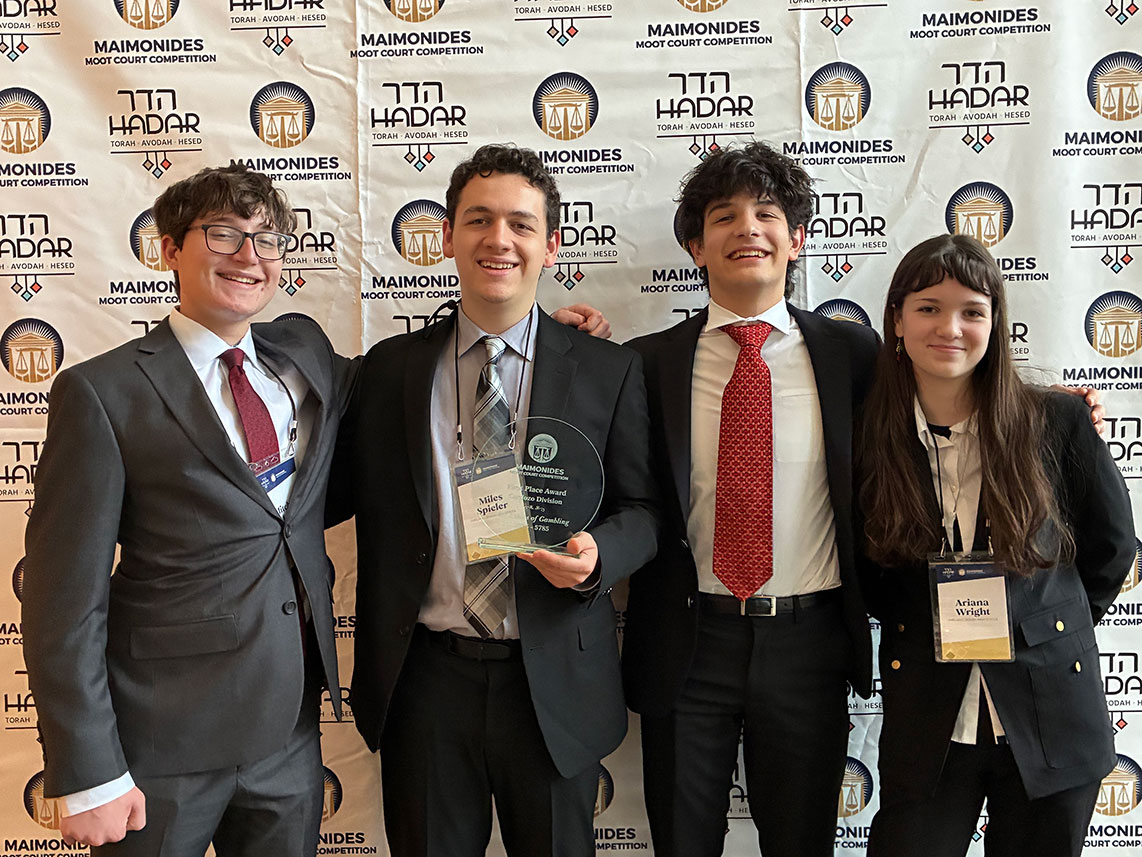By Lorie Kleiner Eckert
Lots of people have bucket lists of places they would like to travel. Adventurous folks look to safaris in Africa, or trekking to Machu Picchu or diving with the great white whales in Australia. Romantic folks might want to visit Tuscany, Bali, Provence, or the like. And then there is Lisa Cook, who isn’t looking for any of that in her travel. She is looking for Jewish history, roots, and meaning. With these interests in mind, she has traveled repeatedly to Poland. Yes, Poland! Amazingly, she will soon have her ninth trip there and more importantly, she recommends such travel to others.
Lisa says, “Being in Poland is really like taking a step back in time. There are so many places that we can connect to as Jewish individuals and as a Jewish community. On past trips we have spent Shabbat in Krakow, exploring on foot the old Jewish Quarter — Kazimierz — and having a Havdalah ceremony at the deportation point of the Krakow ghetto, bringing light into a place that was subsumed in total darkness.”
Each of Lisa’s trips has been different because of the people with whom she has traveled. Many of these people have family members who were either born in Poland, or were sent to ghettos or camps in Poland. She tries to incorporate such locations into the itinerary. This has made each trip powerful and meaningful, as these fellow tourists get a deeper insight into an area of history while also honoring family members whose lives were cut short.

Here are some of the cities Lisa has visited and a special fact about each:
Warsaw is the home of the Okopowa Street Cemetery. It is incredible to see because it contains over 250,000 graves and is itself an example of the diversity of the community of Warsaw — and European Jewry in general — in the century leading up to the city’s destruction. Jews from all over the Jewish map are buried there.
Krakow is a city many are familiar with thanks to “Schindler’s List.” The city was left largely intact by the Nazis, who wanted to showcase Krakow as a model city of theirs in Poland.
Lodz had one of the longest running ghettos because the Jews were used as slave laborers to support the Nazi war machine. From Lodz, one can also see the nearby Radegast train station where thousands of Jews were thrown into cattle cars and transported to Auschwitz.
Lublin is the home of a famous Yeshiva — Chachmei Lublin — started by Rabbi Meir Shapiro. The building is still standing, and many of its original components still exist. It is now a hotel even though its location may not seem very desirable: It is only miles away from the death camp, Majdanek.
Bialystok is of special interest to Lisa Cook. It is her maternal grandfather’s home town. He was one of the few survivors of his large Polish family. One can also visit the former site of the Great Synagogue. It was destroyed by the Nazis on June 27th, 1941 with thousands of Jews inside, including Lisa’s great-grandfather, David Sznajder (Schneider).
As one wonders about Lisa’s many visits to Poland, she says that repeat visits are interesting because of ongoing research that uncovers new things. As an example, archeologists recently excavated the site of Mila 18, which was the bunker of Mordechai Anielewicz, the commander of the Warsaw Ghetto Uprising. Over 5,000 artifacts were uncovered! They are now on display in a nearby museum.
Of course, it is hard to go to Poland without visiting concentration camps, and Lisa usually visits four: Auschwitz-Birkenau, Majdanek, Treblinka and Chelmno. Of this she says, “Poland is a sad place to visit. It is literally the world’s biggest Jewish graveyard. But aside from the sadness and trauma that we’ve encountered, we’ve also taken a deep dive into six hundred years of Jewish history in Europe — a history that is rich, meaningful, and beautiful. There is so much to learn about what Jewish life WAS, and what it can BE, by standing in those places and bearing witness to the strength and depth of our past.”
Speaking of bearing witness, Rachel Littman was with Lisa Cook on one of her trips. She wrote this poem in response to the experience.
I walked beside a ghost today
I saw his home, I heard him pray
We laughed and learned and sang and cried
I walked with him to where he died
Near forest graves I heard him scream
Their blood is why the grass grows green
Across the tracks, through wire gates
We walked across a field of hate
From deep inside a fiery hell
I heard him call Shema Yisroel
As ashes whispered in my ear
“The G-d of Israel can’t be here”
We sang for life and rode to death
I felt six million final breaths
In rooms with scratches in cement
I understood what evil meant
We fought and hoped, despaired and yearned
we danced with angels as we burned
We walked past babies; scared, alone
A massive grave of tiny bones
I walked beside a ghost today
Then got to leave, to walk away
And bring with me these tiny sparks
To kindle flames and light the dark
Lisa Cook has gotten to leave — to walk away with tiny sparks of the past — many times and soon will go back for more. A trip to Poland may not be on everyone’s bucket list. Such a trip is not an adventure vacation or a romantic one, but could there possibly be a more meaningful trip? Jews visiting — and honoring — the millions who perished in Poland for the sole reason that they were Jews? More than just meaningful, the trip would be life changing.





